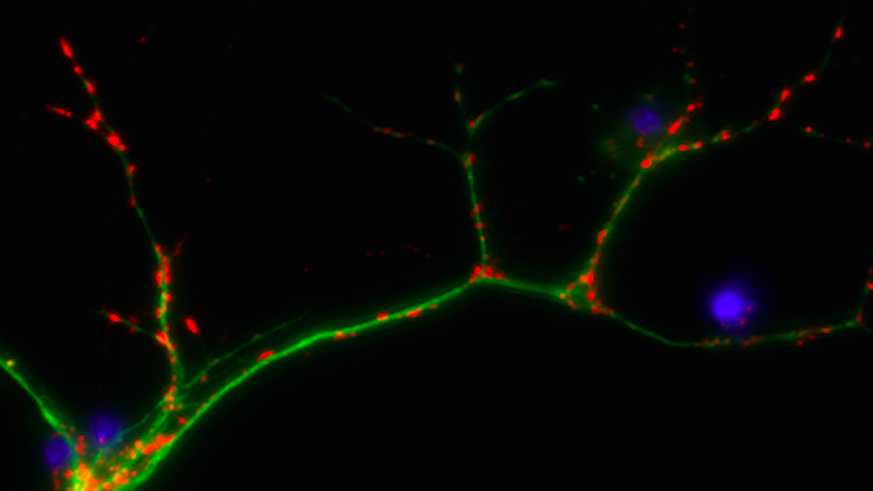Cardiff University neuroimmunologist receives Medical Research Council grant
7 Mehefin 2021

A researcher from the Neuroscience and Mental Health Research Institute (NMHRI) has received a research grant from the Medical Research Council for her work on how the immune system influences the development of anxiety in the teenage years.
Dr Laura Westacott will be using the funding to help develop a further understanding of what causes the development of anxiety.
If the research is successful, it could lead to the development of new medications that target a part of the complement system known as the ‘C3aR receptor’ (C3aR) function to treat anxiety disorders.
Dr Westacott’s work so far has found that the C3aR receptor has a novel role in anxiety, where subjects deficient in this receptor show increased anxiety. These subjects show evidence of reduced connections between brain cells, or synapses, throughout the brain.

“I am delighted to have received this funding. It allows me to take my first steps as an independent researcher. The project will enable me to generate exciting and novel data to address important gaps in our knowledge, with potential to improve our understanding of the origins of anxiety disorders."
The project, which involves a team of early-career researchers at Cardiff University and King’s College London, in collaboration with pharmaceutical company Takeda, will be the first to examine adolescent ‘synaptic pruning’ within brain areas related to anxiety.
Synaptic pruning is the process where the brain undergoes significant changes in its structure and function in adolescence.
This process ensures that infrequently-used synapses are eliminated or 'pruned', allowing the remaining connections to mature. The complement system is critical to this process.
Excessive pruning of synapses may lead to psychiatric disorders, including disordered anxiety. Anxiety disorders typically emerge during the teenage years and affected adolescents are at increased risk for other mental health disorders later in life.
Dr Westacott has identified knowledge gaps of how brain structures that are important for anxiety are pruned during adolescence.
The funding will significantly help develop her further research by fully-testing her predictions that the loss of C3aR leads to excessive synaptic pruning and pathological anxiety.
The research will combine state of the art preclinical imaging techniques with molecular analyses to better understand the brain-wide impacts of abnormal synaptic pruning on brain connectivity and function.
The studies will deliver much-needed information on the neurobiological mechanisms of anxiety, providing insight into how complement and synaptic pruning impacts anxiety-associated brain areas during adolescence.
